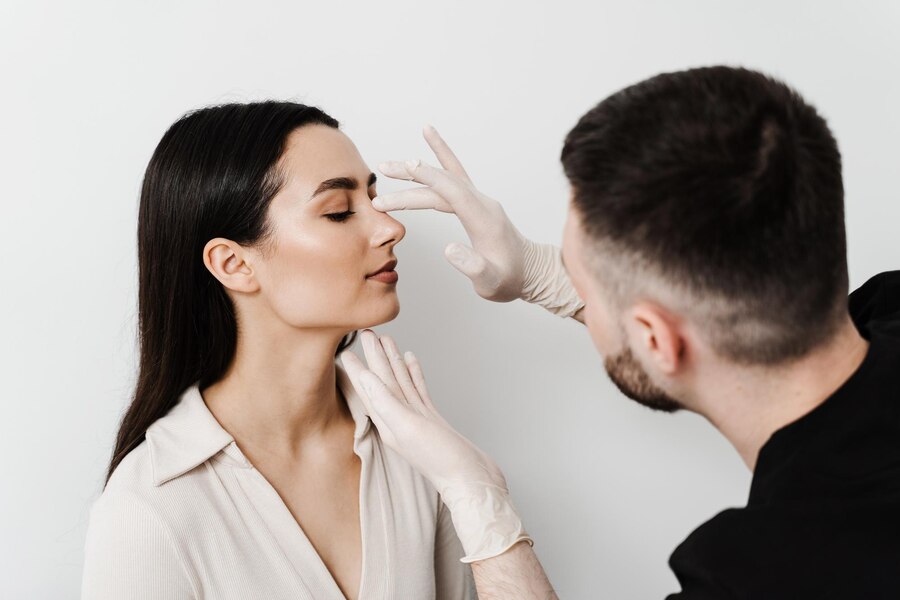Septoplasty is a surgery on the septum of the nose intended to improve your breathing and stop snoring and/or sleep apnea associated with a deviated septum. The septum is the strip of cartilage and bone that divides your nose into two nostrils. Sometimes the septum is deviated, meaning it’s not centered as it should be. This can be present from birth or caused by an injury. A septoplasty, or surgery on the septum, can help by centering the septum.
How long does it take to recover after a septoplasty?
Every patient is different, but in general, expect major recovery to take about a week. During this time, it is optimal to stay home and rest, and certain rules, such as not blowing your nose, must be followed. After this period, it’s usually safe to resume light activity.
Four to six weeks after surgery, it is typically safe to resume exercise and other strenuous activity. However, the septum will continue to heal for several months to a year following the procedure.
It’s important to note that initial healing could take longer if a rhinoplasty is done at the same time as the septoplasty. Your doctor will provide you with guidelines for your unique case.
How long do you have to sleep upright after a septoplasty?
After a septoplasty, it’s important to sleep at around a 45 degree angle in order to have optimal blood flow to the head. On top of being comfortable, this prevents swelling. Sleep in this reclined position for the first week following your procedure.
Can I get a nose job (rhinoplasty) during my septoplasty?
In most cases, yes, you can get a nose job (rhinoplasty) during your septoplasty. If you want to have aesthetic work done on the size or shape of any part of your nose and also need a septoplasty, it’s ideal to have both surgeries performed at the same time. This way you only undergo surgery and recovery once.
Do you get black eyes after a septoplasty?
Some patients worry about getting black eyes after a septoplasty procedure. The good news is that this surgery does not go near the eyes, so black eyes should not be a side effect of a septoplasty.
As both an ENT specialist and a plastic surgeon, Dr. Edmund Fisher is uniquely poised to perform septoplasties on patients, whether performed along with a rhinoplasty or not. Contact our office using the link above to schedule a consultation.




